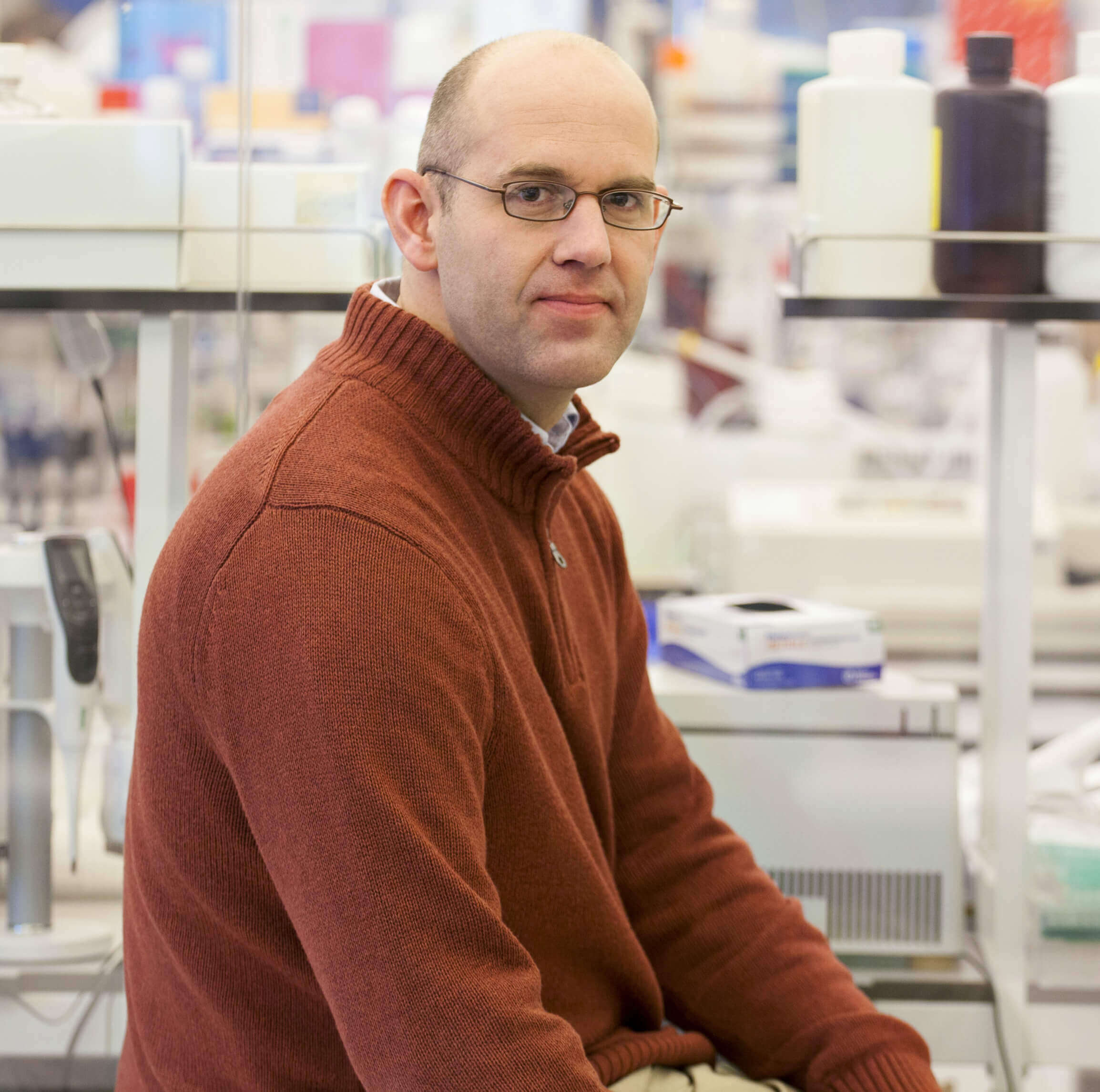This Scientist's Life: David Gray

Meet David Gray, a Senior Director in Pfizer’s Neuroscience Research Unit at Kendall Square, Cambridge, and expert in medicinal chemistry leading a team developing a potential first-in-class Parkinson’s disease treatment.

"Science is a series of baby steps all strung together to make strides," says David Gray.
The most powerful thing ever uttered to Gray by a person with Parkinson’s was a simple plea: Hurry.
And Gray and his team of scientists are trying to do just that. "My connections with the Parkinson’s community have been an extra source of motivation to keep going when it’s tough. The compound that we are developing is one of a few new potential medicines being studied for the main motor symptoms in Parkinson’s. There are some Parkinson’s disease medicines available now, but those medicines can wear off suddenly or have side effects. There is a lot of room for improvement. My team is working to give our potential new medicine its best chance to help people who are waiting for new medicines."
Tackling this disease requires new approaches. "We have tried so many new things, from trying to start an early dialogue with regulatory agencies, to looking for new ways to assess the disease status of people with Parkinson's, to at-home delivery of compounds to patients in clinical trials (so they don’t have to come to the clinic so much). Figuring out how to make these ideas happen is never boring."
Originally a writing major in college, Gray’s attraction to chemistry beganafter interviewing a cancer researcher for a journalism class. “I learned that this cancer researcher’s work involved a lot of creativity and problem solving. I realized then that I really wanted to be doing the experiments and making the discoveries and not just writing about them.” The next semester in college, Gray loaded up on science courses and found his calling. “I enrolled in Organic Chem 101 with an awesome professor who made the subject come alive. I was hooked. I was fascinated by what I was learning then and that fascination has never really subsided.”
Science is a series of baby steps all strung together to make strides, says Gray. “Problem solving is one of my favorite parts of science. I also love trying to find a path forward among a number of competing ideas. Amazing breakthroughs from three years ago are common techniques today and there is still so much more to be discovered.”
The cause of Parkinson’s disease is still unknown, making it a challenge to find a cure. “Even though we understand the main symptoms of Parkinson’s pretty well, we don’t understand the initial triggers of the neurodegenerative decline. The illness starts long before any of the symptoms are apparent to a patient or those around them. Ultimately, what everyone would like to see is a cure, that’s a real challenge when you only have a hypothesis about what is causing the initial triggers of the disease.”
But Gray, like all great scientists, is sustained by hope and persistence. “Based on the data we have so far in preclinical and very early clinical studies, we may have an opportunity to meaningfully improve the lives of people with Parkinson’s around the world. I hope that our potential new medicine is safe and efficacious enough to make that happen."
To learn more about careers in science at Pfizer, explore our current opportunities.





